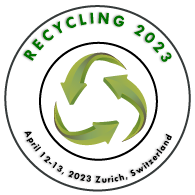Plastics Recycling Opportunities and Challenges
Plastics may be easily moulded into a variety of things for a wide range of functions and are inexpensive, lightweight, and long-lasting materials. As a result, over the past 60 years, the production of plastics has drastically increased. But the current rates of usage and disposal lead to a number of environmental problems. Around 4% of the world's non-renewable oil and gas production is used as a feedstock for plastics, and an additional 3-4% is required to provide the energy for their manufacture.
Plastic is used to create disposable packaging and other products with short shelf lives that are thrown away after a year.
Recycling, one of the most important strategies currently available to lessen these effects, is also one of the most active sectors in the plastics industry. Recycling lowers the quantity of garbage that needs to be disposed of, reduces carbon dioxide emissions, and uses less oil. In this part, we briefly contrast recycling with other waste-reduction strategies such product reuse, downsizing, and alternate biodegradable material use. We also compare recycling to energy recovery as a fuel.
The majority of plastic waste may eventually be diverted from landfills to recycling if the public, business, and governments cooperate, thanks to improvements in technologies and methods for collecting, sorting, and reprocessing recyclable plastics.
Conferences on Plastic Recycling, Events Dedicated to Plastic Recycling, Congresses Dedicated to Plastic Recycling, etc.
Related Conference of Plastics Recycling Opportunities and Challenges
Plastics Recycling Opportunities and Challenges Conference Speakers
Recommended Sessions
- Bioremediation
- Challenges in Plastic Waste Collection and Segregation
- Cylindrical Plastic for Packaging
- E-Waste
- Electric Vehicle (Ev) Batteries Circular Economy
- Innovation & Technology in Plastics Recycling
- Management and Recycling of Waste
- Physical & Chemical advanced Recycling
- Plastics Recycling Opportunities and Challenges
- Recovery of Thermal Waste
- Recycling Chemical Waste
- Recycling Industrial
- Recycling of Food and Agricultural Waste
- Recycling of Metal
- Recycling of Paper
- Solid Waste Management
- Start-up Showcase,
- The Bio-Electrochemical Treatment System is on
- The Bioplastics
- Treatment of Waste Water

